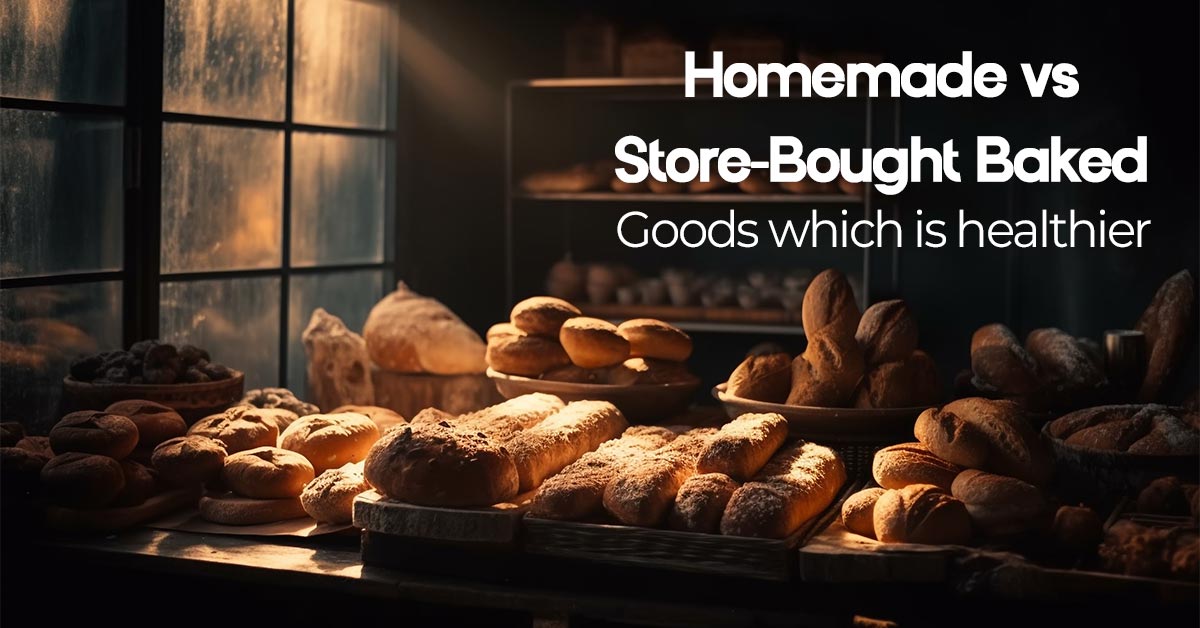Introduction:
The wafting aroma of fresh baked goods is a universal delight, capable of conjuring memories and stirring appetites. However, amidst the allure of pastries and bread, lies a lingering question: are homemade baked goods healthier than their store-bought counterparts? This debate encompasses not only considerations of taste and convenience but also delves into the realms of nutrition, ingredient quality, and the impact on overall health. Let’s embark on a journey with our baking classes in Chennai to uncover the truth behind the flour-dusted veil of homemade versus store-bought baked goods.
The Homemade Advantage:
There’s a certain charm to homemade baked goods that transcends mere taste. Beyond the satisfaction of crafting something with your own hands lies the ability to control every ingredient that goes into your creation. When baking at home, you have the power to select high-quality, wholesome ingredients, steering clear of artificial additives, excessive sugar, and preservatives commonly found in store-bought options.
Flour, the cornerstone of most baked goods, can be a prime example. Opting for whole grain flour in homemade recipes adds fiber, vitamins, and minerals that are often stripped away in refined flour used by commercial bakeries. Similarly, homemade treats allow for the incorporation of healthier fats like olive oil or avocados instead of the hydrogenated oils and trans fats prevalent in many store-bought products.
Moreover, when baking at home, you have the flexibility to adjust recipes to suit dietary preferences or restrictions. Whether you’re reducing sugar, omitting allergens, or experimenting with alternative sweeteners, homemade baked goods offer a level of customization impossible to achieve with mass-produced varieties. The top baking courses in Chennai, conducted by us, lets you experiment with different flavors that help you find your niche.
The Store-Bought Dilemma:
While convenience may be the primary allure of store-bought baked goods, it comes at a cost, both figuratively and literally. Mass-produced treats often prioritize shelf-life and profit margins over nutritional value and ingredient quality. This translates to a laundry list of additives, stabilizers, and artificial flavors designed to enhance taste and extend product longevity.
One of the chief concerns surrounding store-bought baked goods is their high sugar content. From cookies to cakes, many commercial products contain alarming amounts of added sugars, contributing to excessive calorie consumption and potential health issues such as obesity and diabetes. Furthermore, the prevalence of refined flours in store-bought treats means missing out on the nutritional benefits inherent in whole grains.
Another point of contention is the presence of preservatives and artificial additives. While these substances serve to prolong shelf-life and maintain consistency, their long-term effects on health remain a subject of debate. Common additives like potassium bromate, azodicarbonamide, and artificial food dyes have been linked to a range of health concerns, including cancer and behavioral issues in children.
The Hidden Costs:
Beyond the nutritional considerations, there are broader implications associated with both homemade and store-bought baked goods. The environmental impact of mass production, packaging waste, and transportation logistics cannot be overlooked. Store-bought treats often come wrapped in layers of plastic and cardboard, contributing to the global waste crisis. In contrast, homemade baking allows for greater sustainability by reducing packaging waste and supporting local suppliers.
Furthermore, the economic aspect merits attention. While store-bought baked goods may seem more affordable at first glance, the long-term costs of health repercussions and environmental degradation paint a different picture. Investing in high-quality ingredients for homemade baking may initially require a greater financial outlay but pays dividends in terms of health, satisfaction, and environmental stewardship.
Finding Balance:
In the ongoing debate between homemade and store-bought baked goods, the key lies in finding a balance that aligns with personal preferences, values, and lifestyle. While homemade treats offer unparalleled control over ingredients and nutritional quality, store-bought options provide convenience and accessibility in a fast-paced world. Striking a balance between the two allows for indulgence without compromising health or sustainability.
Tips for Healthier Baking:
For those inclined towards homemade baking, here are some tips for enhancing the nutritional value of your creations:
- Choose whole grain flours like whole wheat, spelt, or oats flour for added fiber and nutrients.
- Experiment with natural sweeteners like honey, or mashed bananas to reduce refined sugar content.
- Incorporate nutrient-rich add-ins like nuts, seeds, and dried fruits for extra flavor and texture.
- Go for healthier fats such as olive oil, coconut oil, or mashed avocado instead of butter or shortening.
- Reduce salt content and avoid excessive use of additives by opting for organic or minimally processed ingredients.
Join our baking institute in Chennai to learn from our professional patissiers to become a pro at baking with healthier alternatives..
Conclusion:
In the timeless debate between homemade and store-bought baked goods, the scales tip in favor of homemade for those prioritizing health, quality, and sustainability. By baking at home, you gain control over ingredients, nutritional content, and environmental impact, while also enjoying the therapeutic benefits of the baking process. However, the convenience and accessibility of store-bought treats cannot be dismissed outright, especially in today’s fast-paced world. Ultimately, the choice between homemade and store-bought baked goods is a personal one, influenced by individual preferences, values, and circumstances. Regardless of the path chosen, mindful consumption and a commitment to health and sustainability can guide us towards a sweeter, more wholesome future.


